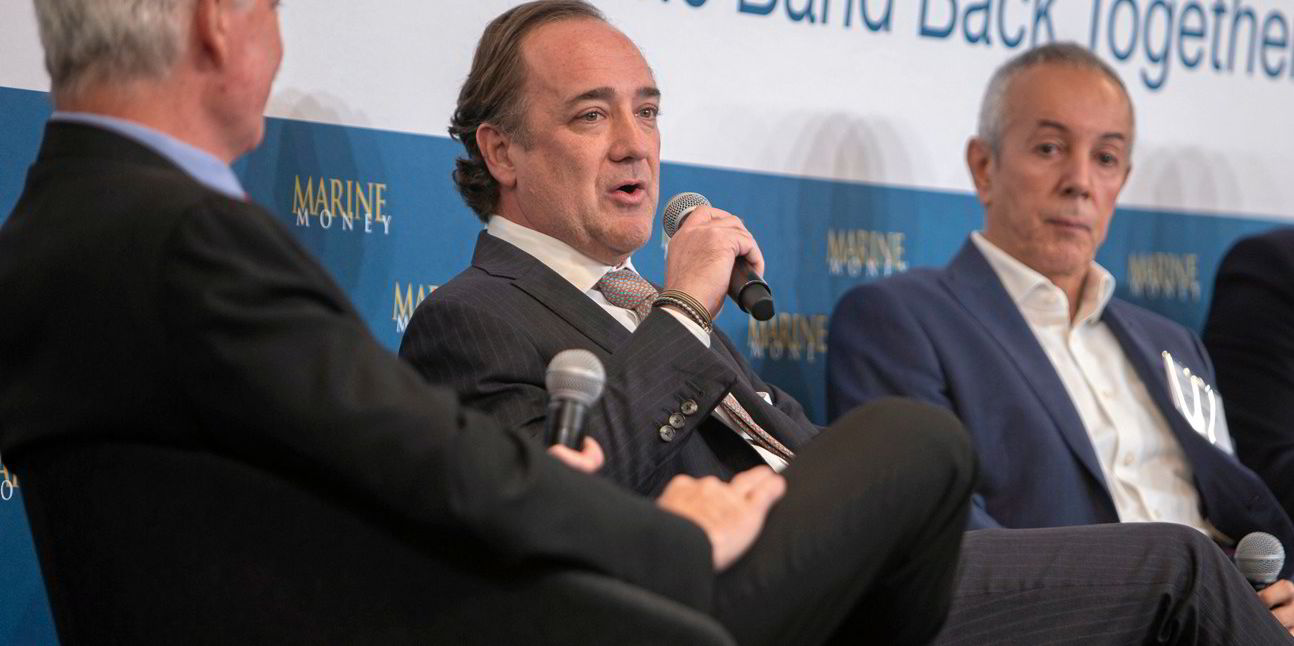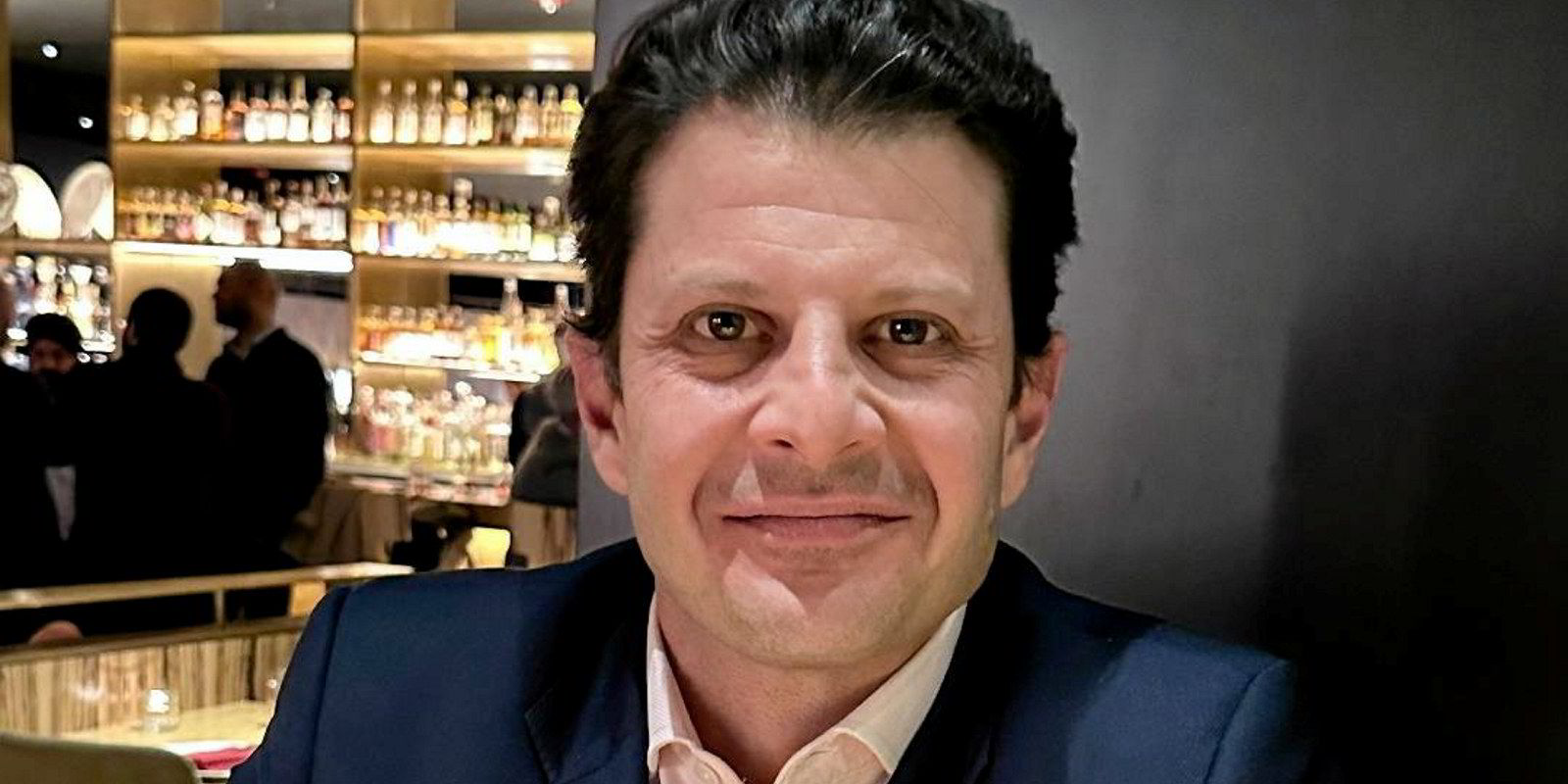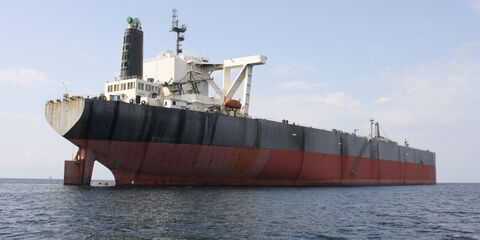Apostolos Zafolias came to New York’s Genco Shipping & Trading in a bull market just a couple of months before its July 2005 initial public offering, his starter job running PowerPoint presentations in the finance department.
Zafolias is departing some 18 years later as the company’s chief financial officer. It is a different world and a different landscape for public shipowners in dry bulk, but during another freight market that may be poised to build on what has been a generally profitable run since the autumn of 2020.
Riding the cycles
In between those two high points in market cycles, there has been a crisis in world financial markets, a pre-packaged bankruptcy reorganisation, at least one major recapitalisation and, oh, that Covid-19 thing that disrupted things for a while.
So as Zafolias charts a course of return to his native Athens and a job in real estate, he carries with him both rewards and satisfaction from the recent high market and the battle scars from all those lean years — all the false dawns, all the black swans.

Streetwise caught up with Zafolias for a bit of a farewell to shipping near Genco’s headquarters in midtown Manhattan recently, joined by chief executive John Wobensmith and manager Peter Allen, who would emerge a few days later as Zafolias’ successor as CFO.
Zafolias’ recap of his humble start at Genco en route to the CFO title sparked a discussion point for Wobensmith, even without tipping his hand that Allen was about to be promoted in similar fashion.
“Where else other than shipping can you come in with almost zero knowledge, basically running the graphic arts department, and go all the way up to CFO?” Wobensmith asked rhetorically.
“We have a fairly flat hierarchy, and smart people get a shot. You try to do a good job of bringing the younger people up so that there’s not a lot of distance between me and the rest. It’s giving smart, capable people the responsibility and opportunity to benefit themselves and the company.”
Like other members of the dry bulk IPO class of 2005, Genco initially had robust success and rapid growth into the market peak of spring 2008, when the bottom fell out amid the world financial meltdown.
Genco eventually would resort to a pre-packaged Chapter 11 reorganisation from April to July 2014, emerging afresh with private-equity investors as its new shareholders and board members.
After navigating positions such as financial analyst, financial associate and assistant vice president, Zafolias would step into the CFO role in December 2014.
Along the way, he would earn certification as a chartered financial analyst (CFA), a designation also held by Allen and Wobensmith, who was a career banker before landing at Genco.
“There was a little bit of baptism by fire for me,” Zafolias recalled. “It was a very dynamic board at the time with private equity members coming on with big positions. Educating is the wrong word, but the amount of reports and analysis we had to prepare at the time was a lot more intense.”
Despite the fresh start, markets tanked again and Genco faced the need for another recapitalisation in 2016 — a trend that caught out many of its dry bulk peers as well.
Zafolias credited Wobensmith’s relationship-building with the company’s lenders for helping that go smoothly.
“That was relationship-banking 101,” Wobensmith said. “That was a very tough time in 2015 and 2016, and without the relationships we had, we never would have gotten our credit facility restructured and ultimately the recapitalisation.
“The banks trusted the management team and the management team trusted the banks.”
The market generally improved off that floor, and 2018 was a key year for Genco. It negotiated another debt refinancing, carried out an equity raise and acquired six new ships — the latter two deals accomplished while executives were attending the Posidonia conference in Greece.
But the black swans were not done, not with the Vale dam collapse to start what was supposed to be a strong 2019, leading up to the Covid-19 shock in the first half of 2020.
No one knew the duration of the Covid-19 demand destruction, and Genco acted quickly to put in place a $25m revolving credit facility despite its relatively strong balance sheet.

“Even though it was a small revolver, it was probably one of the most difficult deals I have ever done,” Zafolias said. “These banks had airline exposure, they had cruise line exposure, and here’s Genco looking for a revolver.”
As it turns out, the trough was short, the revolver unneeded, and it has been largely milk and honey for Genco since, as it uses cash flow from operations to slash debt, reduce operating break-evens and pay shareholders an enhanced dividend, all per a strategic plan.
“The bottom line is we’ve told investors all we were going to do, and then we’ve done what we’ve said we’d do,” Zafolias said. “That gives you credibility in the market and makes it easier to maintain relationships both with equity analysts and shareholders in general.”
Zafolias said the position of strength makes it easier to leave Genco, though he remains a bit coy on details of his new post.
“If there’s any time for me to go to a different venture without impacting the company very much, this is probably it,” Zafolias said.
“My move is a combination of a professional and personal-life decision. The job is in real estate, and it’s for a public company. It’s a very exciting project, important to the company and emblematic for Greece as well, so my patriotism is playing in a little bit.”
Still, the transition may take some getting used to.
“Hopefully, we’ll continue to have some strong years ahead of us,” Zafolias said, before catching himself.
“Well, I can’t say we any more,” he said, chuckling. “Hopefully, Genco will have some strong years ahead.”
More ship-finance news
The Hoegh family is still standing squarely behind Hoegh Autoliners following its sale of shares worth NOK 766m ($70m) in a private placement. Investment company Leif Hoegh & Co (LHC) disposed of 12.25m shares representing 6.4% of the Oslo-listed car carrier company. Click here to read.
Freightos has widened its first-quarter loss after incurring a one-time cost of nearly $47m to become a listed company. The container booking and payments platform merged with blank cheque outfit Gesher I Acquisition Corp in late January to become listed on the Nasdaq. Click here to read.
Idan Ofer is closing in on John Fredriksen as the UK’s richest shipowner, according to the latest edition of The Sunday Times Rich List. While the Norwegian shipping tycoon is still the richest shipowner resident in the UK with a fortune of £8.311bn ($10.3bn), Ofer is just £311m behind him on £8bn. Click here to read.(Copyright)



